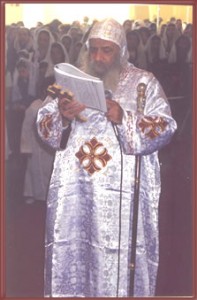 Biblical education has been documented in the Holy Bible from the time of Moses as being of utmost importance. Through God’s spokesman, Moses, the Israelites were charged to teach His Holy Commandments to their children, “Recite them to your children and talk about them when you are at home” (Deuteronomy 6:7). At that time, many Israelites instructed their children in the home setting. Fathers educated sons in all aspects of the Israelite faith. The wealthy we learn in the Holy Book of II Kings 10:6, often hired professional teachers to instruct their children.
Biblical education has been documented in the Holy Bible from the time of Moses as being of utmost importance. Through God’s spokesman, Moses, the Israelites were charged to teach His Holy Commandments to their children, “Recite them to your children and talk about them when you are at home” (Deuteronomy 6:7). At that time, many Israelites instructed their children in the home setting. Fathers educated sons in all aspects of the Israelite faith. The wealthy we learn in the Holy Book of II Kings 10:6, often hired professional teachers to instruct their children.
In the King David era, archaeologists have unearthed tablets inscribed with school exercises from that time period which may have been when formal schools actually emerged. By the first century BC, Jews had set up elementary schools in synagogues and homes throughout all of Israel. The basic subjects taught were memorization of Holy Scripture, reading, writing, and mathematics. Older students sometimes sought out master teachers who could instruct them in the intricacies of Holy Bible interpretation and Jewish tradition.
We are further told in the Holy Book of Acts 22:3 of St. Paul finding such a teacher in Gamaliel, who was a respected member of the Sanhedrin.
In the year 61 AD, St. Mark the Evangelist entered the City of Alexandria preaching Christianity to Egypt. As the growth of the Christian faith grew, St. Mark guided by the Holy Spirit recognized the need for establishing a theological school to explain and to consolidate the Christian faith. The School of Alexandria is well documented as the earliest important institution of theological learning in Christian history.
Alexandria at that time was a melting pot and a homeland of learning for many. It was inhabited by Egyptian, Greek, and Jewish cultures. Therefore, it was a necessity to have a Christian school of learning. It was further felt by St. Mark that a center of learning was the only way in which to give respect and rise to Christianity, a new religion.
The theological school began by teaching the people who wanted to be baptized whether they were Jewish, Gentile, or Christian. The beginning priority of the school was to strengthen faith. The school opened its doors to all people with different religions, cultural backgrounds, and varying social positions. The theological school was a mix of both sexes without discrimination. Its emphasis was placed upon theoretical studies and the life of faith and true Christian love.
Recorded by St. Eusebius the Scholar as well as St. Jerome, the theological school’s founder was St. Mark, who appointed Justus as its first dean (who would also later become the 6th Patriarch). Most of the prominent leaders of Alexandria were involved with the school either as teachers or students and many were to become future Patriarchs.
The first great director of the school was Pantaenus, whom was credited as one of those who adopted the Greek alphabet in the Coptic script. His successor was St. Clement of Alexandria noted for his efforts in attempting to reconcile Greek philosophy and Christianity.
Origen the Scholar, Heracles, and Dionsius would also become deans of the Theological School of Alexandria. In the years to follow St. Athanasius would give the headship of the school to St. Didymus the Blind. Among his students would be St. Gregory of Nazianzen, St. Jerome, and Rufinus.
In 451, with the first split of the church following the Council of Chalcedon, the emperors of Constantinople closed the school. In l893, His Holiness Pope Kyrillos V began a new seminary in Cairo and Christian education gained momentum once more.
On September 30, l962, His Holiness Pope Kyrillos VI ordained Fr. Antonious El Souriany as Bishop Shenouda, the first appointed Bishop for Christian Education. Following this ordination, His Grace Bishop Shenouda then became the President and Dean of the Theological College.
Today as our endearing pope, His Holiness Pope Shenouda III’s continued efforts to emphasize education make it a priority for the Coptic Church. Besides the seminary in Cairo, His Holiness Pope Shenouda III has established six additional seminaries in: Alexandria, Tanta, Menoufeia, Menia, Mouharrak Monastery and Beliana, two seminaries in the USA and one in Australia.
Through His Holiness’ numerous lectures and speeches, countless books and websites, and through encouraging and establishing many Coptic schools in several countries, education and instruction abounds ensuring the growth and strength of the Coptic Church today. For Maccabees 13:22 states: “(Brothers) grow stronger from both general education and our discipline in the Law of God.”
Truly, as His Holiness’ life example demonstrates, the Holy Bible was given for our earthly transformation with education as its foundation. As it is written, “Do not conform to the pattern of this world, but be transformed by the renewing of your mind” (Romans 12:2).
In honor of His Holiness Pope Shenouda III’s 40th Anniversary of becoming the first bishop of Christian education the Coptic Orthodox Diocese of the Southern United States dedicates this Sunday School curriculum.
Ultimately to know the will of God is the greatest of all educational pursuits, to understand the will of God is the greatest educational discovery and putting Christian education to use by doing the will of God is the greatest of life’s achievements.